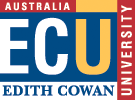COURSE INFORMATION
Disclaimer
This course information may be updated and amended immediately prior to semester. To ensure you have the correct outline, please check it again at the beginning of semester.
| G83 Bachelor of Science (Forensic and Biomolecular Science) | ||||||||||||||||||||||||||||||||||||||||||||||||||||||||||||||||||||||||||||||||||||||||||||||||||||||||||||||||||||||||||||||||||||||||||
Forensic and Biomolecular Science is the study of biological systems at the molecular level. It involves the collaborative efforts of a wide range of specialists, including biochemists, biologists, chemists and biotechnologists. During the last half-century there have been remarkable advances in our knowledge of the molecular chemistry of biological systems, most evident in the booming genetics and biotechnology industries. The Bachelor of Science (Forensic and Biomolecular Science) provides a detailed background in biological systems at the molecular level and an introduction to its application to Forensic Science. Students are prepared for employment in research, development and commercial activity in a wide range of health sciences, law enforcement, natural resource management and commercial biotechnology industries. The course meets the demand for scientists who have a strong focus on laboratory-based careers in molecular science, as applied both to medicine-based and science-based disciplines in a most promising area of scientific and technological opportunity. |
||||||||||||||||||||||||||||||||||||||||||||||||||||||||||||||||||||||||||||||||||||||||||||||||||||||||||||||||||||||||||||||||||||||||||
| ADMISSION REQUIREMENTS Standard University Admission requirements apply. |
||||||||||||||||||||||||||||||||||||||||||||||||||||||||||||||||||||||||||||||||||||||||||||||||||||||||||||||||||||||||||||||||||||||||||
| COURSE LOCATION This course is available on Joondalup Campus. |
||||||||||||||||||||||||||||||||||||||||||||||||||||||||||||||||||||||||||||||||||||||||||||||||||||||||||||||||||||||||||||||||||||||||||
| MODE OF STUDY This course is available by Full-time, or Part-time mode. |
||||||||||||||||||||||||||||||||||||||||||||||||||||||||||||||||||||||||||||||||||||||||||||||||||||||||||||||||||||||||||||||||||||||||||
| MODE OF DELIVERY This course is available in the following mode of delivery - On-campus. |
||||||||||||||||||||||||||||||||||||||||||||||||||||||||||||||||||||||||||||||||||||||||||||||||||||||||||||||||||||||||||||||||||||||||||
| COURSE STRUCTURE The Bachelor of Science (Forensic and Biomolecular) degree is a 24 unit, 360 credit point, three year full-time award which may be studied in part-time mode. The degree has two main components: (i) a foundation program in the first year; (ii) a major program in the second and third years consisting of a number of specified units and electives. |
||||||||||||||||||||||||||||||||||||||||||||||||||||||||||||||||||||||||||||||||||||||||||||||||||||||||||||||||||||||||||||||||||||||||||
| ||||||||||||||||||||||||||||||||||||||||||||||||||||||||||||||||||||||||||||||||||||||||||||||||||||||||||||||||||||||||||||||||||||||||||
Last Updated - Higher Education: 9/30/2006 VET: 9/30/2006
